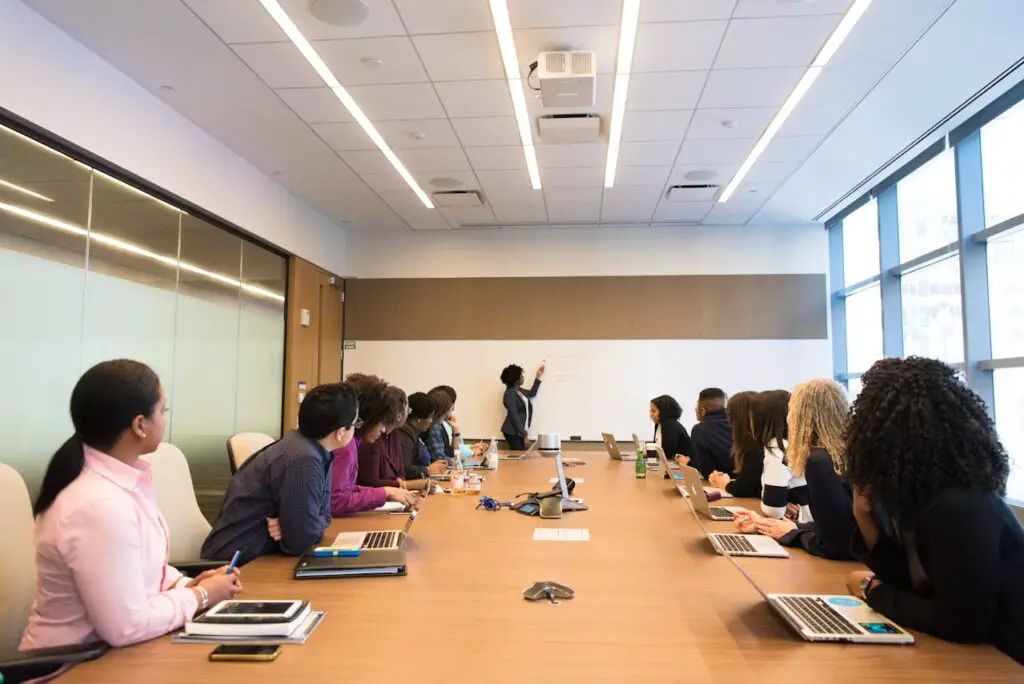13 Workplace Mistakes HR Experts Say Could Ruin Your Career

Success in your career is not just about working hard. It is also about avoiding critical missteps that could derail your progress. HR experts emphasize that certain workplace mistakes can have long-term consequences, from stalling promotions to jeopardizing your reputation. Whether you are just starting or well into your career, avoiding these common pitfalls can help you stay on track. Here are 13 workplace mistakes that could ruin your career if you are not careful.
1. Ignoring Office Politics

Many professionals believe that staying out of office politics will help them focus on their work, but completely ignoring workplace dynamics can be a big mistake. Understanding relationships, alliances, and power structures within your company can help you navigate challenges more effectively. HR experts say that failing to recognize who influences decisions and how teams operate can leave you isolated or overlooked for key opportunities.
2. Failing to Adapt to Change

Companies evolve, and employees who resist change often find themselves left behind. Whether it is new technology, company restructuring, or shifts in leadership, those who fail to embrace change risk being seen as inflexible. Employers value adaptability, and those who can quickly adjust and learn new skills will stand out as valuable assets to the organization.
3. Burning Bridges with Colleagues or Bosses

No matter how frustrating a job, boss, or coworker may be, leaving a workplace on bad terms can come back to haunt you. HR professionals stress the importance of maintaining professionalism when transitioning between jobs. You never know when you will need a reference or when a former colleague might end up in a position to influence your career opportunities.
4. Overpromising and Underdelivering

Setting unrealistic expectations and then failing to meet them can quickly damage your credibility. While it is great to be ambitious, consistently missing deadlines or delivering subpar work because of overcommitting makes you appear unreliable. Instead, HR experts recommend setting realistic goals and exceeding them whenever possible to build a reputation for reliability and excellence.
5. Neglecting Your Professional Development

Complacency can be one of the biggest career killers. Many employees stop learning once they settle into their roles, but HR professionals warn that failing to invest in continuous development can make you obsolete in the long run. Staying updated with industry trends, taking courses, and improving your skill set can keep you competitive and increase your chances of promotions and salary increases.
6. Engaging in Gossip or Office Drama

Participating in workplace gossip may seem harmless at first, but it can severely impact your professional image. HR experts caution that spreading rumors or badmouthing colleagues can make you appear untrustworthy and unprofessional. Managers take note of employees who contribute to a toxic work environment, and being associated with workplace drama can limit your career growth.
7. Failing to Take Initiative

Passively waiting for assignments instead of proactively seeking opportunities to contribute can limit your career advancement. HR specialists highlight that employees who show initiative by proposing ideas, volunteering for projects, and going beyond their job descriptions are more likely to be considered for leadership roles. Employers value problem-solvers who can take charge rather than just follow instructions.
8. Disregarding Company Culture and Policies

Every company has its own set of values, norms, and expectations, and failing to align with them can create friction. Whether it is dress codes, work hours, or communication styles, HR experts say that employees who ignore company culture risk being seen as a poor fit. Familiarizing yourself with and respecting workplace policies can help you blend in seamlessly and build positive relationships with management and colleagues.
9. Poor Time Management and Missing Deadlines

Consistently missing deadlines or mismanaging time signals to employers that you are unreliable. HR professionals stress that failing to prioritize tasks, being late to meetings, and struggling with deadlines can affect your credibility. Developing strong time management skills, using calendars and task lists, and setting realistic deadlines can help you stay organized and maintain your professional reputation.
10. Misusing Company Resources

Using company resources, such as email, computers, and office supplies, for personal use might seem insignificant, but it can be a serious offense. HR experts warn that excessive personal internet browsing, making personal calls on company time, or using office supplies for personal projects can be perceived as unprofessional behavior. Some companies actively monitor employee activity, and misuse of resources could lead to disciplinary actions or even termination.
11. Having a Negative Attitude

A negative attitude at work can make you difficult to work with and impact team morale. HR specialists emphasize that constant complaining, resistance to feedback, and a pessimistic outlook can prevent career growth. Employers appreciate employees who bring a positive, solution-oriented approach to challenges. Demonstrating enthusiasm and a willingness to contribute to a positive work environment can help you stand out as a team player.
12. Failing to Build a Strong Professional Network

Relying solely on your job performance without building relationships within your industry can limit your career prospects. HR experts highlight that networking is crucial for professional growth, as connections can lead to mentorship, job referrals, and opportunities for advancement. Attending industry events, engaging on professional platforms like LinkedIn, and maintaining relationships with colleagues can help open doors to future career opportunities.
13. Ignoring Feedback and Refusing to Improve

One of the fastest ways to stall your career is to ignore constructive criticism. HR professionals note that employees who dismiss feedback or refuse to improve are less likely to grow within a company. Being open to feedback, actively working on self-improvement, and showing a willingness to learn from mistakes demonstrate professionalism and maturity. Those who take feedback seriously are more likely to earn respect from managers and secure long-term success.
Final Thoughts

Your career trajectory is shaped by both the positive steps you take and the mistakes you avoid. Being mindful of workplace dynamics, maintaining professionalism, and continuously developing your skills can help ensure long-term success. By avoiding these 13 common workplace mistakes, you can build a strong professional reputation, increase your job security, and open doors to new opportunities. Take charge of your career by making smart choices and positioning yourself for success.

Leave a Reply